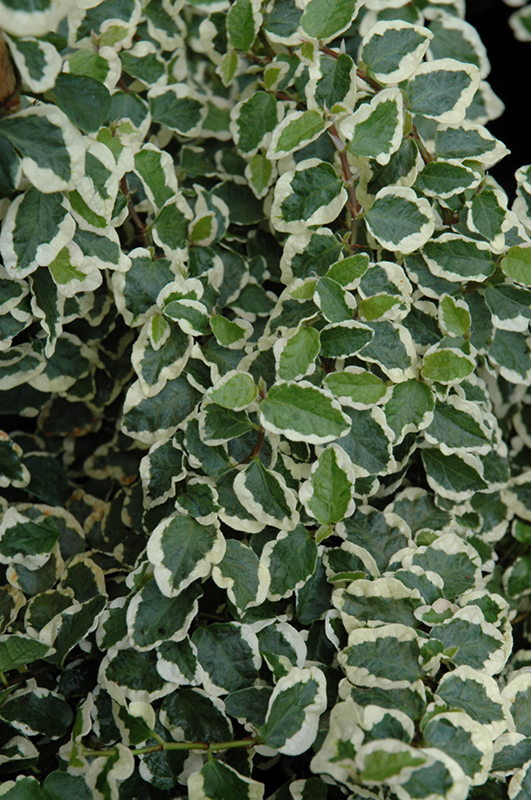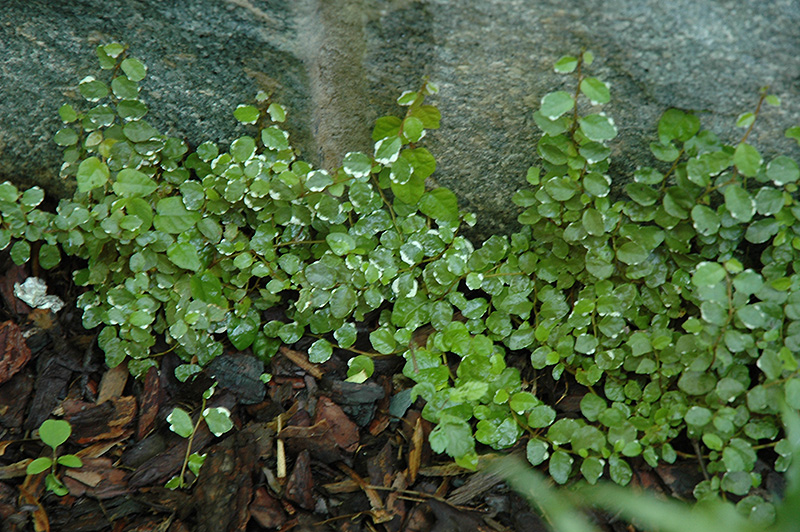Variegated Creeping Fig
Ficus pumila 'Variegata'
Height: 30 feet
Spread: 3 feet
Sunlight:
![]()
![]()
Hardiness Zone: 7b
Description:
This variety is a vigorous climber that will scale any porous surface; it will quickly cover surfaces upwards of 50 feet; mature plants adopt a more horizontal habit when they reach upward limits; visually stunning when maintained on walls or trellises
Ornamental Features
Variegated Creeping Fig has attractive white-variegated dark green foliage on a plant with a spreading habit of growth. The heart-shaped leaves are highly ornamental and remain dark green throughout the winter.
Landscape Attributes
Variegated Creeping Fig is a multi-stemmed evergreen woody vine with a twining and trailing habit of growth. Its average texture blends into the landscape, but can be balanced by one or two finer or coarser trees or shrubs for an effective composition.
This woody vine will require occasional maintenance and upkeep, and can be pruned at anytime. It is a good choice for attracting birds to your yard. Gardeners should be aware of the following characteristic(s) that may warrant special consideration;
- Invasive
Variegated Creeping Fig is recommended for the following landscape applications;
- Hedges/Screening
- General Garden Use
Planting & Growing
Variegated Creeping Fig will grow to be about 30 feet tall at maturity, with a spread of 3 feet. As a climbing vine, it tends to be leggy near the base and should be underplanted with low-growing facer plants. It should be planted near a fence, trellis or other landscape structure where it can be trained to grow upwards on it, or allowed to trail off a retaining wall or slope. It grows at a fast rate, and under ideal conditions can be expected to live for 50 years or more.
This woody vine does best in partial shade to full shade. Keep it well away from hot, dry locations that receive direct afternoon sun or which get reflected sunlight, such as against the south side of a white wall. It does best in average to evenly moist conditions, but will not tolerate standing water. It may require supplemental watering during periods of drought or extended heat. It is not particular as to soil type or pH, and is able to handle environmental salt. It is highly tolerant of urban pollution and will even thrive in inner city environments. This is a selected variety of a species not originally from North America.


